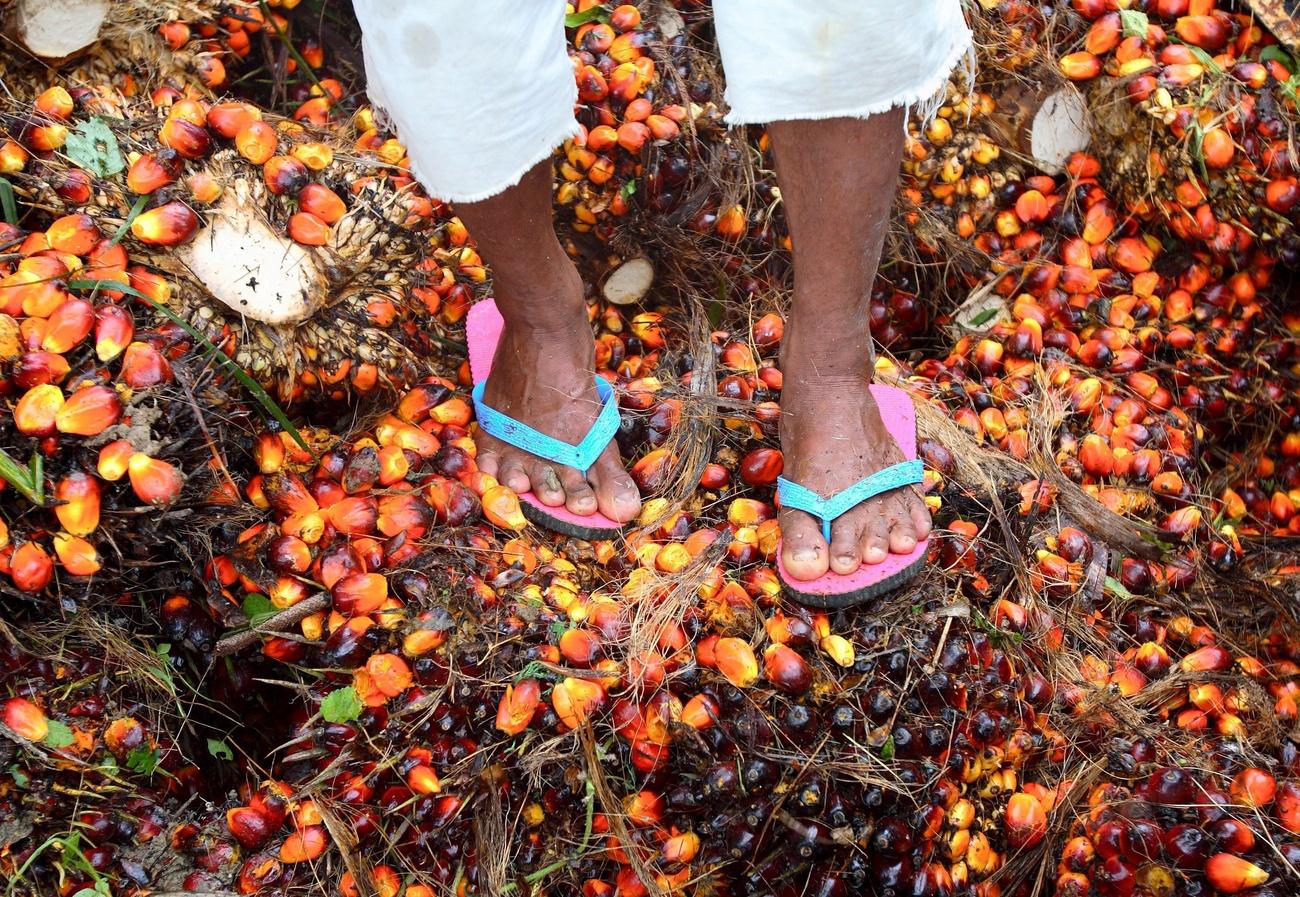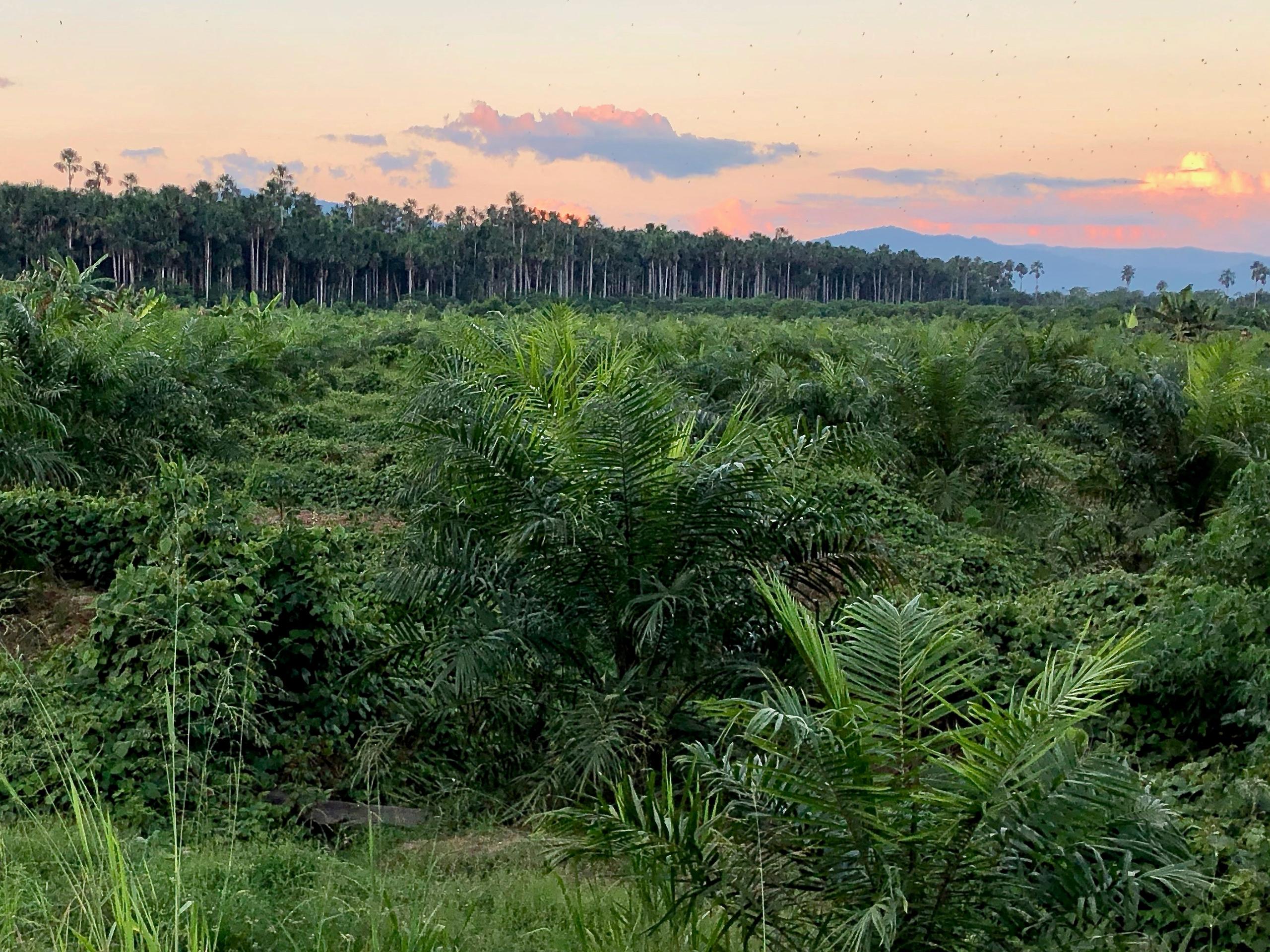
Nestlé criticised over migrant palm oil workers in Malaysia

A Swiss NGO has criticised food giant Nestlé for buying palm oil from Malaysian suppliers who it claims exploit workers, including children, on plantations where forced labour is widespread.
Almost one in six products sold in Swiss supermarkets and other retail stores, especially food, cosmetics and cleaning products, contains palm oil. Swiss firms import one-third of their palm oil needs from Malaysia, much of which comes from Sabah, a state occupying the northeast part of the island of Borneo.
There most of the difficult and dangerous work on plantations is carried out by Indonesian migrant workers, of whom around 840,000 are undocumented, a new study by Solidar SwitzerlandExternal link published on Tuesday revealed.
It reported that around 50,000-200,000 children live with their parents on these plantations and help their families to survive by picking fruit and other work. The children born on plantations are often stateless, as Malaysia does not issue birth certificates to the children of migrant workers. They have no access to public schools or medical care.
The NGO says Nestlé buys large quantities of palm oil from Sabah, including from the factories that process palm oil from the plantations it investigated.
“As a result, Nestlé and other food companies benefit from low wages and poor working conditions on the ground, which are at the root of child labour,” the NGO said.
“Although Nestlé claims it does not tolerate forced and child labour in its supply chain, these worst forms of exploitation remain widespread. This shows once again that the fight against human rights and labour violations is still too low a priority for some multinationals.”
The authors of the report urge Nestlé to act on their findings to ensure its suppliers and business partners in Sabah offer legal employment contracts and do not employ children.
Nestlé said it bought 460,000 tons of palm oil External link in 2016 for its products, such as Kit-Kat chocolate and Maggi noodles. They are reportedly supplied from 15,000 mills, the vast majority based in Indonesia and Malaysia.
Nestlé reply
A Nestlé spokesman told swissinfo.ch: “Human rights abuses and child labor have no place in our supply chain. We were informed of the allegations by Solidar Switzerland. We are in contact with them and wish to establish the facts in this matter. If the allegations are true, we will take decisive action.”
More widely, Nestlé said it had conducted a human rights impact assessment of its upstream supply chain and labour conditions in 2017. All sites were encouraged to adopt action plans for mills. Nestlé has also adopted a global action plan to improve labour conditions in palm oil supply chains.
The food giant says it has improved its sourcing of palm oil. In 2018, 54% of the palm oil volumes were traceable to plantation, 91% traceable to mill, and 64% “responsibly sourced”, Nestle saidExternal link.
In Sabah, it has compiled a list of social services available to workers and set up a hotline for them to report abuses, the Le Temps reported on Monday.

More
Can Nestlé source Peruvian palm oil without deforestation?

In compliance with the JTI standards
More: SWI swissinfo.ch certified by the Journalism Trust Initiative





























You can find an overview of ongoing debates with our journalists here . Please join us!
If you want to start a conversation about a topic raised in this article or want to report factual errors, email us at english@swissinfo.ch.